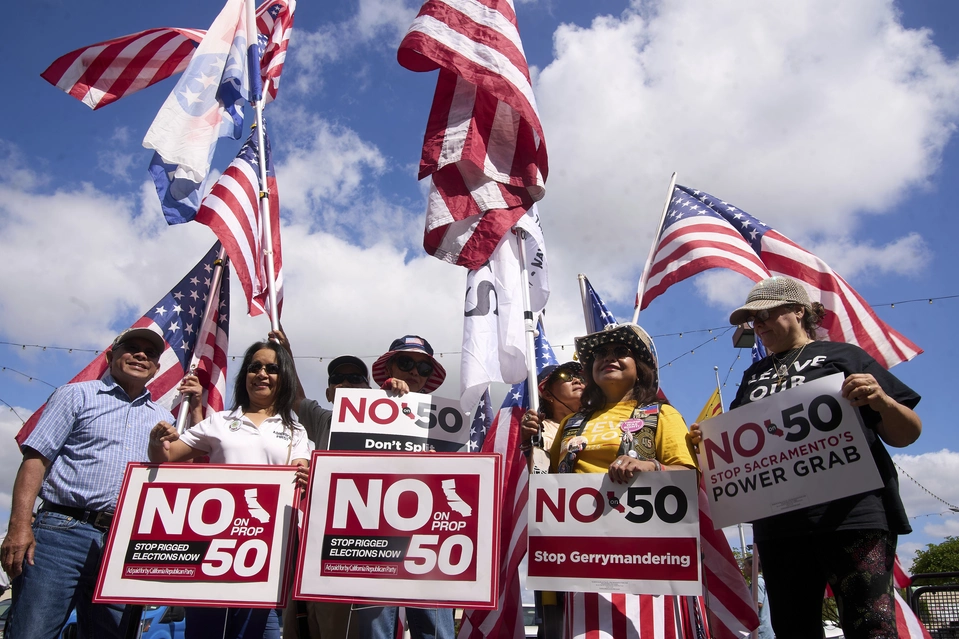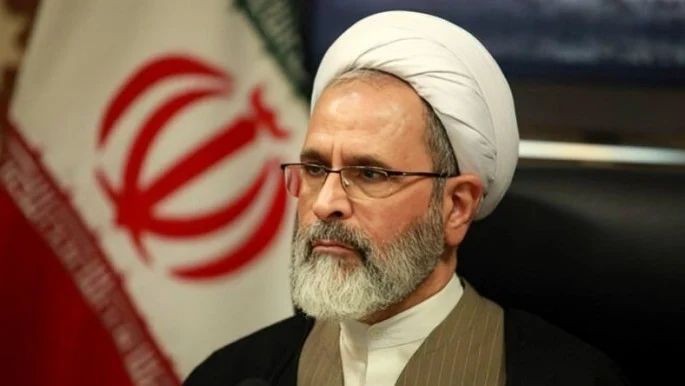Republican efforts to stop California Proposition 50 have nearly vanished one week before voters head to the polls. The Democratic-backed ballot measure, which would reshape California’s congressional districts, now appears on track for an easy victory.
The California Prop 50 campaign once promised a fierce political battle over redistricting. Early polls suggested a close race, and Republican leaders spoke confidently about raising millions to defeat the initiative. But as the election nears, the campaign’s funding, leadership, and visibility have all but disappeared.
Governor Gavin Newsom’s “Yes on 50” movement continues to flood television and social media with ads, while opposition spending has dried up. The main Republican funding groups have gone quiet, and major donors have stopped contributing.
Financial reports show a sharp decline in spending by the leading anti-Prop 50 committee, Protect Voters First. Its weekly advertising budget fell from more than $4 million earlier in the campaign to less than $300 during the week of October 21. Another opposition group, Stop Sacramento’s Power Grab, spent only $155,000 on ads in the same week. By contrast, the pro-Prop 50 campaign spent nearly $4 million.
Analysts say the imbalance reflects how quickly the campaign’s momentum collapsed. In August, Proposition 50 looked vulnerable. Surveys showed public support hovering just above 50 percent, leaving room for opponents to sway undecided voters. Republican strategists believed they could rally their base and appeal to moderates with enough funding.
Instead, enthusiasm faded, and money ran out. Wealthy donor Charles Munger Jr., who had bankrolled earlier efforts to protect California’s independent redistricting process, stopped contributing after September 29. His committee has defended its reduced spending, saying it had reached its planned limit.
The lack of support from other donors left the opposition without resources to compete in the state’s expensive media markets. Advertising on television, radio, and digital platforms nearly stopped in October, while Democrats continued to dominate public messaging.
Some Republican figures have begun blaming party leadership for the defeat. Several consultants said that the campaign relied too heavily on outdated outreach methods like direct mail while neglecting online engagement. Others accused the committees of wasting money on ineffective ads and poor planning.
The declining campaign activity contrasts sharply with the Democrats’ coordinated and energetic push for Proposition 50. The measure would redraw California’s congressional districts in a way that analysts say would likely increase Democratic control in the U.S. House.
Polls now show strong public support for Prop 50. A recent CBS News survey found that 62 percent of likely voters plan to vote yes, while only 27 percent plan to vote no. The rest remain undecided, but the margin suggests that the initiative is almost certain to pass.
The remaining opposition efforts have been minimal. Republican groups have issued brief statements saying they are still informing voters about the value of citizen-led redistricting but offered few details on outreach plans. Some have hinted that discussions about campaign strategy will continue after the election.
Former Republican leaders in the state say the current situation reflects deeper problems within the party’s organization and funding networks. They argue that national donors are hesitant to invest in a state where Democrats hold strong majorities and control most statewide offices.
The situation has frustrated many grassroots conservatives. At a recent rally near Sacramento, party activists accused the campaign of mismanaging funds and failing to connect with ordinary voters. Some called the campaign “inauthentic” and said it lacked a clear message.
Meanwhile, President Donald Trump has not personally intervened in the debate, though his administration announced plans to send federal election monitors to California. Critics have described the move as an unnecessary show of force, while supporters say it ensures fair oversight.
Political analysts believe the near-collapse of the anti-Prop 50 effort signals a broader challenge for Republicans in California. Despite strong early fundraising promises, the party has struggled to maintain enthusiasm or cohesion in a heavily Democratic state.
As the election approaches, Democratic leaders are treating the measure’s passage as all but certain. If voters approve it next week, the redrawing of congressional districts could shape California’s political map for the next decade.
With the Republican opposition fading and the California Prop 50 campaign firmly in Democratic hands, many observers say the outcome now appears inevitable.







